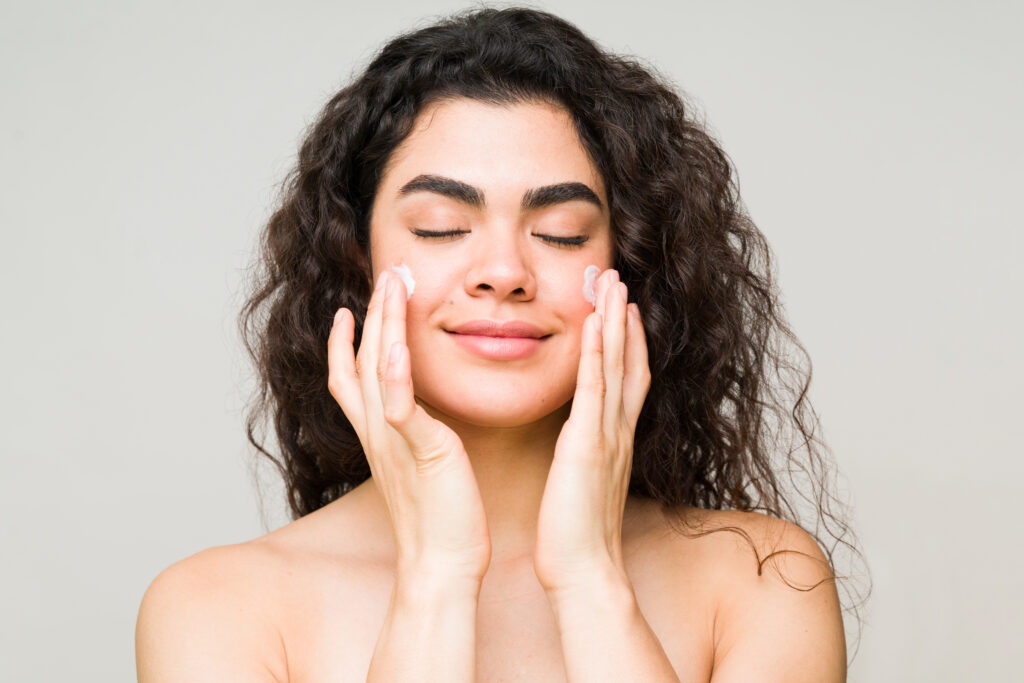Bright Days Ahead: Choosing and Using Sunscreen

Imagine a perfect day at the beach: the sound of waves crashing, the laughter of children playing in the sand and the warm embrace of the sun on your skin. While the sun can make for a joyful day out, it also poses significant skin health challenges. Amidst the fun, one essential tool often goes unnoticed—sunscreen. As our primary shield against the harmful effects of the sun, understanding and using sunscreen effectively is vital for maintaining healthy skin.
The Science of UV Rays
Sunscreen is more than just a cream or spray; it’s a key tool designed to protect our skin from ultraviolet (UV) rays. There are two main types of UV radiation that affect the skin: UVA and UVB. UVA rays penetrate deep into the skin and are primarily responsible for aging and long-term skin damage, while UVB rays cause sunburn. Both types play a significant role in increasing the risk of skin cancer. Notably, up to 75% of UVA can pass through ordinary glass, making indoor protection important as well.
Over the years, sunscreen formulations have significantly evolved. Modern products offer broad-spectrum protection, shielding against both UVA and UVB rays. Advances in technology have also led to sunscreens that are water-resistant, providing protection even during water activities.
Types of Sunscreen
When it comes to sunscreen, there are two main types to consider: physical (mineral) and chemical. Physical sunscreens, also known as mineral sunscreens, include active ingredients like titanium dioxide or zinc oxide. These minerals act as a physical barrier, sitting on the skin’s surface to deflect and scatter UV radiation away. They are often recommended for sensitive skin because they are less likely to cause irritation.
Chemical sunscreens work differently. They contain organic compounds such as avobenzone, octinoxate and oxybenzone, which absorb UV radiation, convert it into heat, and then dissipate the heat from the skin. These sunscreens tend to be lighter and blend more seamlessly into the skin, making them a popular choice for daily wear under makeup.
Choosing the Right Sunscreen
Selecting the right sunscreen is essential for effective protection. The Sun Protection Factor (SPF) indicates how well a sunscreen will protect skin from UVB rays. For example, SPF 30 means it would take 30 times longer for your skin to burn than without any sunscreen. While no sunscreen can block 100% of UV rays, broad-spectrum sunscreens with SPF 30 or higher provide substantial protection.
For those with specific skin concerns, such as acne-prone or darker skin tones, it’s important to choose a product that suits your skin type without causing additional issues. At Dermatology Associates of Plymouth Meeting, we recommend mineral-based sunscreens for those with sensitive or acne-prone skin as they are less likely to clog pores or cause irritation.
Schedule a consultation to achieve the healthiest skin of your life
Contact UsApplication Tips and Common Mistakes
Proper application is key to maximizing the effectiveness of sunscreen. A general rule of thumb is to apply a “shot glass full” of sunscreen to cover the whole body and a nickel-sized dollop on the face. Reapply every two hours or immediately after swimming, sweating, or towel drying. Common mistakes include applying too little sunscreen, missing spots like the ears, tops of feet or back of the neck, and not reapplying throughout the day.
Sunscreen and Skin Health
Incorporating sunscreen into your daily skincare routine can significantly reduce the cumulative effects of sun exposure, which include premature aging and increased skin cancer risk. At Dermatology Associates of Plymouth Meeting, we advocate for a proactive approach to skincare, emphasizing the importance of daily sun protection as part of a holistic skin health strategy.
Besides sunscreen, other protective measures such as wearing sun-protective clothing, wide-brimmed hats and seeking shade during peak sun hours (10 a.m. to 2 p.m.) can also help protect your skin from sun damage.
Protect Your Skin with Expert Care
As we look forward to sunny days, whether at the beach, at a picnic, or just walking through a park, remember that sunscreen is your ally in maintaining skin health. We encourage everyone to make sunscreen a non-negotiable part of their daily routine.
Our team is dedicated to helping you achieve and maintain healthy skin with the right knowledge and tools. Schedule your appointment today and take the first step towards a healthier, sun-protected future.
